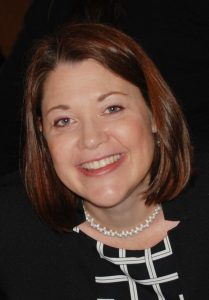Tuesday, July 30, 2019
What does it mean to be a public health social worker? CISWH’s Boston University Advancing Leadership in Public Health Social Work (BU-ALPS) project explores the career paths and impact of MSW/MPH alumni.
Emily Shea, MSW, MPH, Commissioner, Age Strong Commission, City of Boston, MA
 Emily Shea is a 1998/1999 graduate of the Boston University MSW/MPH Program. She majored in Clinical Practice with a focus on gerontology at the School of Social Work and Health Services Administration at the School of Public Health. Emily focused on clinical practice so she could better prepare for her career in health administration and has found her clinical background has helped her understand human behavior, mental health, the ethics of professional boundaries, and how to work effectively one-on-one with people.
Emily Shea is a 1998/1999 graduate of the Boston University MSW/MPH Program. She majored in Clinical Practice with a focus on gerontology at the School of Social Work and Health Services Administration at the School of Public Health. Emily focused on clinical practice so she could better prepare for her career in health administration and has found her clinical background has helped her understand human behavior, mental health, the ethics of professional boundaries, and how to work effectively one-on-one with people.
She became an administrator early on in her career. “For the past seven years, I have worked as the Commissioner for the Age Strong Commission at the City of Boston,” says Emily. “My office serves as Boston’s Area Agency on Aging and Boston’s Council on Aging. We assess needs, plan and fund an aging services network of grassroots agencies, and provide direct services for older adults in the city. It is our job to make sure older adults in our city have access to the supports they need (both health and social determinants of health). But we also work to ensure that we, as a city, recognize all that elders have to offer and contribute. I use the skills I learned in school every day. I keep my clinical knowledge in the back of my mind as I work on individual situations and issues or when moving larger projects forward. I love my job because I get to work on a policy level, systems change level, and individual level, so it is never boring, and it is definitely public health social work!”
“I love my job because I get to work on a policy level, systems change level, and individual level, so it is never boring, and it is definitely public health social work!”
Emily notes that she has benefited from having the MSW/MPH degree combination and a public health social work orientation. “I think my work lends itself to both social work and public health, so it’s been easy to integrate. In fact, it would be hard to do the role without the integration of the two…Much of what we do is geared toward health care and the social determinants of health.” But she also observes that many of her colleagues don’t know about or understand public health social work or how her background makes her better at the job. She observes, “I’m often asked about my work, but I tend to speak about it in terms of the aging field, not necessarily public health social work. However, if those of us actually doing this work could look for more opportunities to raise public health social work’s visibility, that might be a good thing, especially given that more of us are graduating every year.” Emily recommends the development of public health social work talking points to help brand the work. “This is hard, because there is so much variability in what we do, but it would be helpful for practitioners and students alike to strengthen their identities as public health social workers.”
Emily’s advice for students: “There is a growing emphasis on the social determinants of health and their impact on health care costs. This represents one of the biggest opportunities for MSW/MPH graduates.”